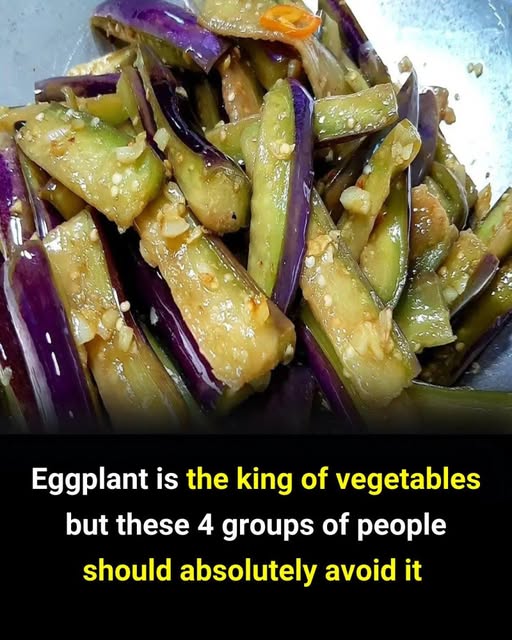Eggplant, often hailed as the “king of vegetables,” is a fiber-rich, low-calorie superfood packed with essential vitamins, minerals, and powerful antioxidants. A single serving provides at least 5% of the daily recommended intake of fiber, copper, manganese, vitamin B6, and thiamine, along with a variety of other beneficial nutrients.
Powerful Antioxidants in Eggplant
Eggplant is loaded with phenolic compounds, including anthocyanins like nasunin, lutein, and zeaxanthin, which help neutralize harmful free radicals. These antioxidants protect cells from damage, reducing the risk of chronic diseases and slowing aging.
The deep purple hue of eggplant comes from nasunin, a rare and potent antioxidant that:
Shields DNA and cell membranes from oxidative stress
Enhances brain function by aiding nutrient transport into cells
Helps prevent cognitive decline by reducing neuroinflammation
Additionally, eggplant contains 13 types of phenolic acids, including chlorogenic acid, which has anti-cancer, antiviral, and antibacterial properties.
Top Health Benefits of Eggplant
1. Supports Heart Health
Eggplant is rich in fiber, potassium, vitamin C, vitamin B6, and antioxidants, all of which promote cardiovascular health. Studies show that anthocyanins reduce inflammation linked to heart disease. Women who consume anthocyanin-rich foods (like blueberries and eggplants) have a 32% lower risk of heart disease and improved blood pressure levels.
2. Lowers Bad Cholesterol
The chlorogenic acid in eggplant helps reduce LDL (“bad”) cholesterol and may prevent fatty liver disease. With 2.4g of fiber per 96g serving, eggplant also aids in maintaining healthy cholesterol levels.
3. May Help Prevent Cancer
Eggplant’s polyphenols and anthocyanins combat cancer by:
Blocking tumor blood vessel growth
Reducing inflammation
Inhibiting enzymes that spread cancer cells
4. Boosts Brain Function
Nasunin improves blood flow to the brain, helping prevent memory loss and age-related cognitive decline. It also slows lipid peroxidation, a process that damages brain cells.
5. Protects Eye Health
Lutein and zeaxanthin in eggplant help prevent age-related macular degeneration (AMD), a leading cause of vision loss in older adults.
Who Should Avoid Eggplant?
Despite its benefits, eggplant isn’t suitable for everyone. Certain individuals should limit or avoid it:
1. People with Anemia or Iron Deficiency
Eggplant skin contains anthocyanins, which bind to iron, zinc, and copper, reducing their absorption. Those with iron-deficiency anemia should opt for iron-rich foods like red meat and liver instead.
2. Those with Stomach Sensitivity
continued on next page
ADVERTISEMENT

